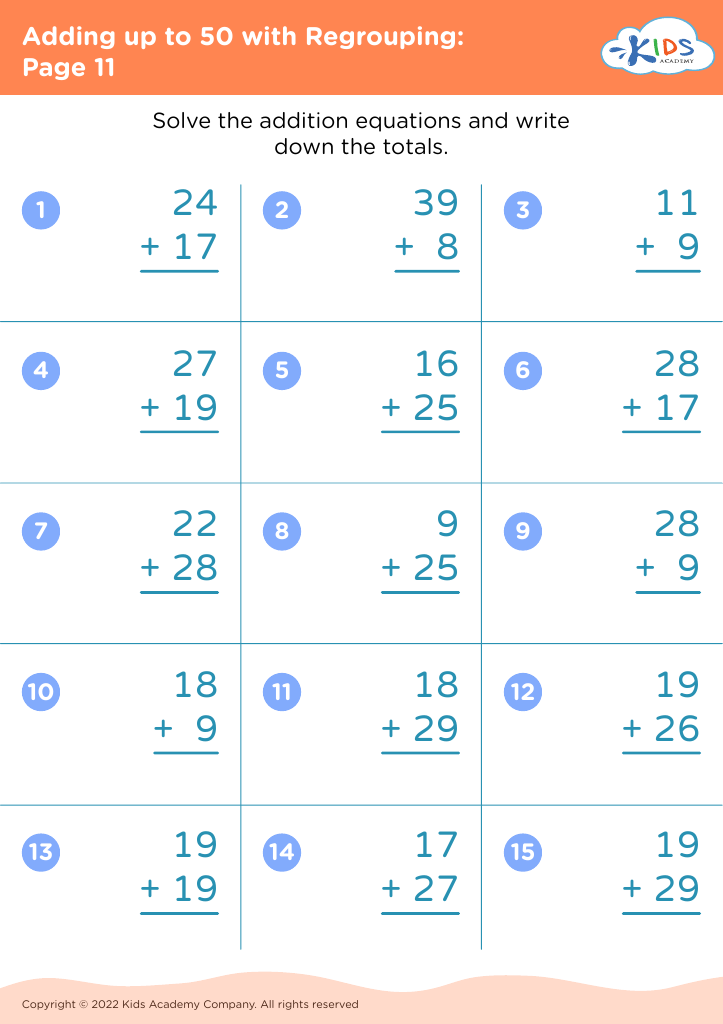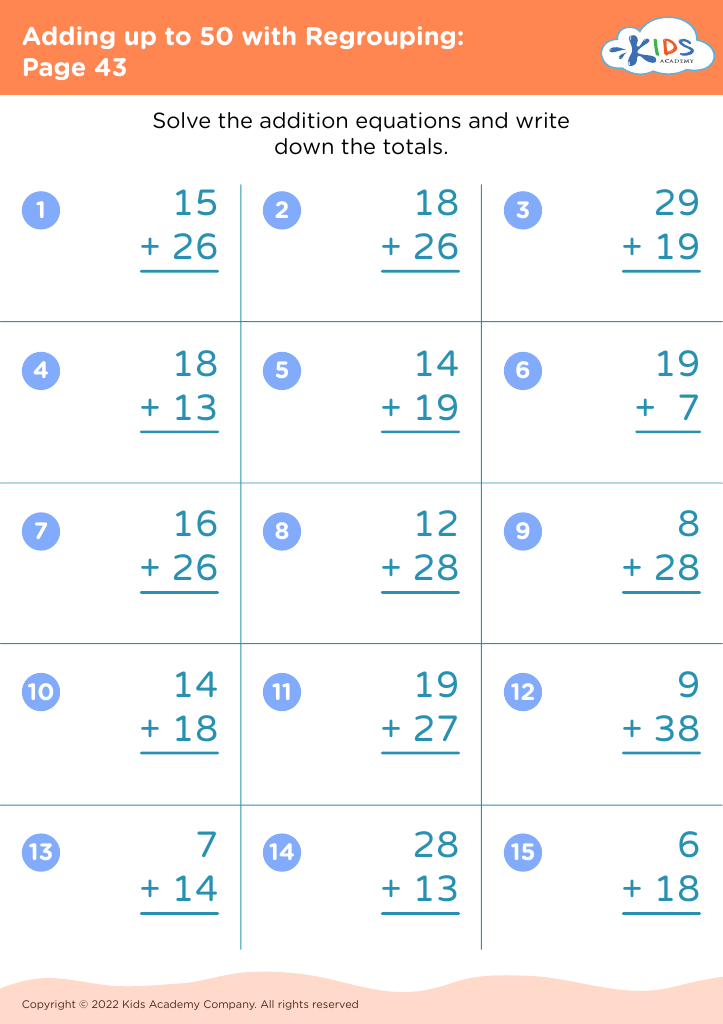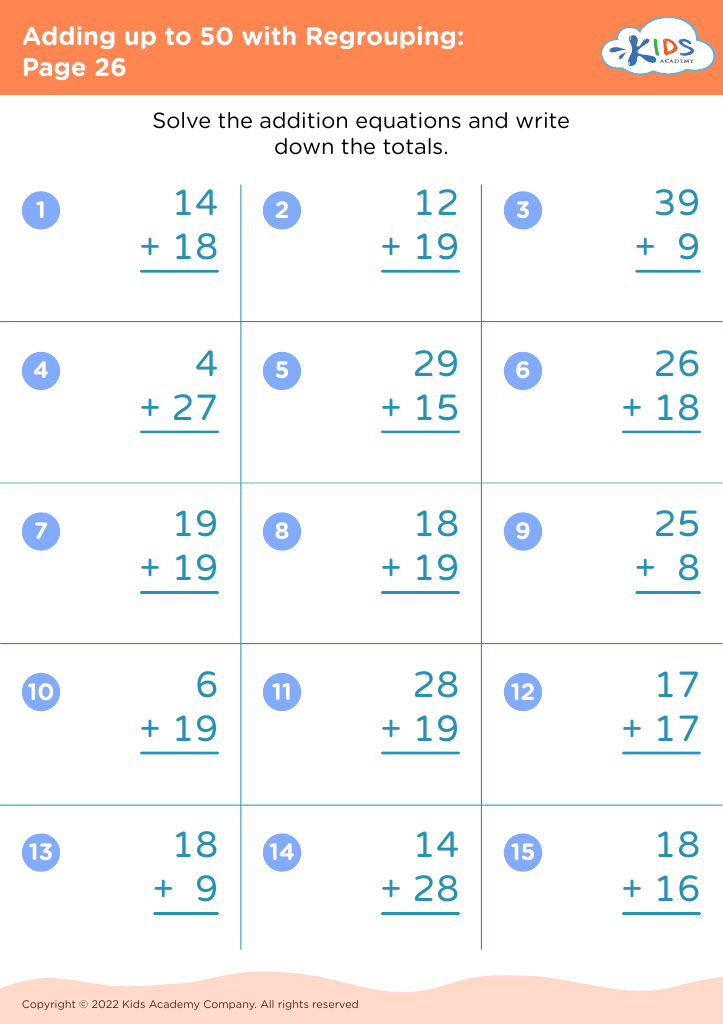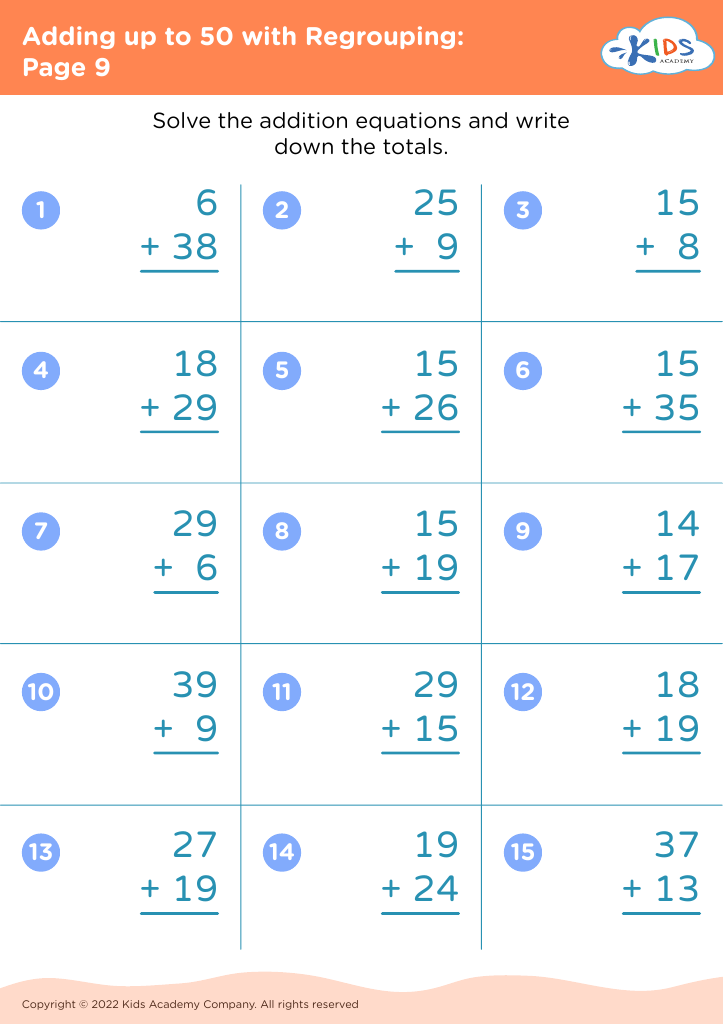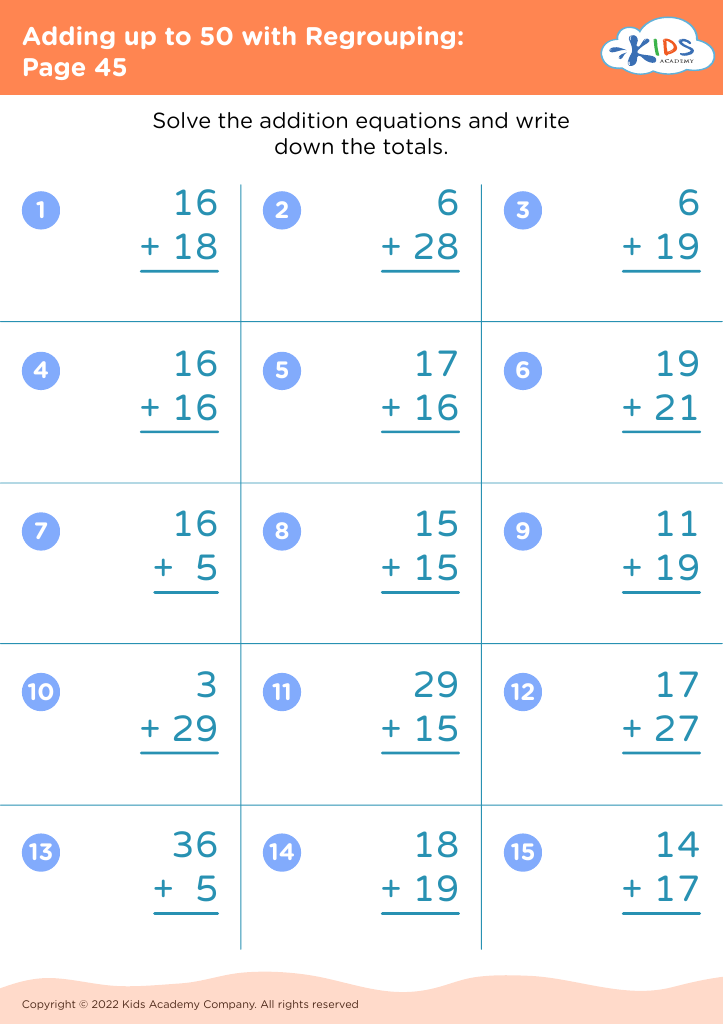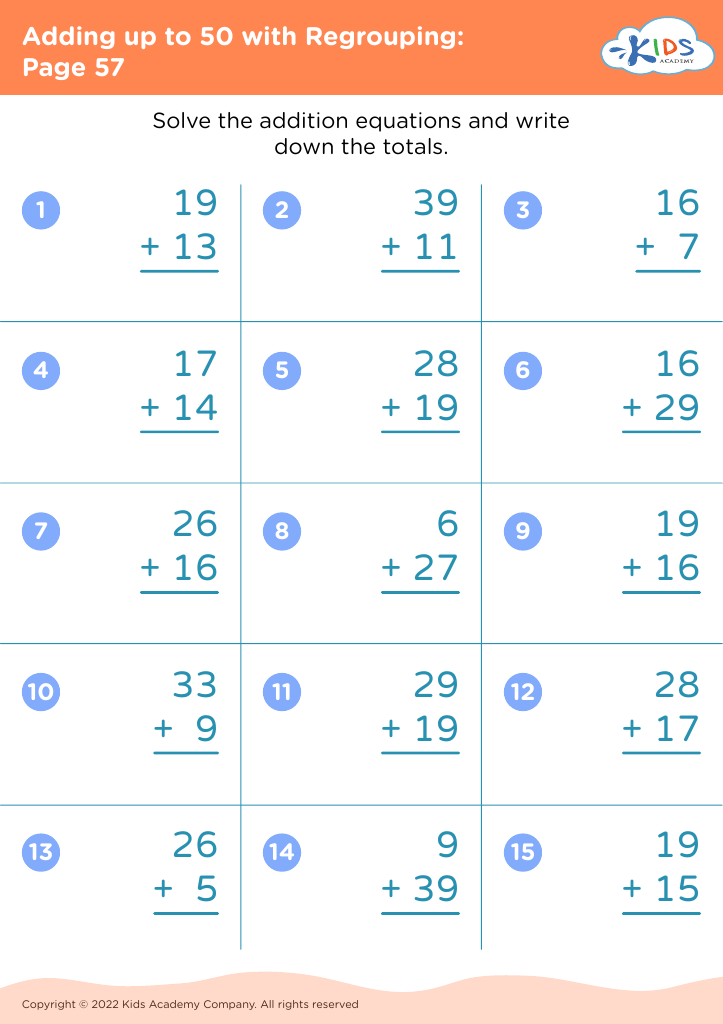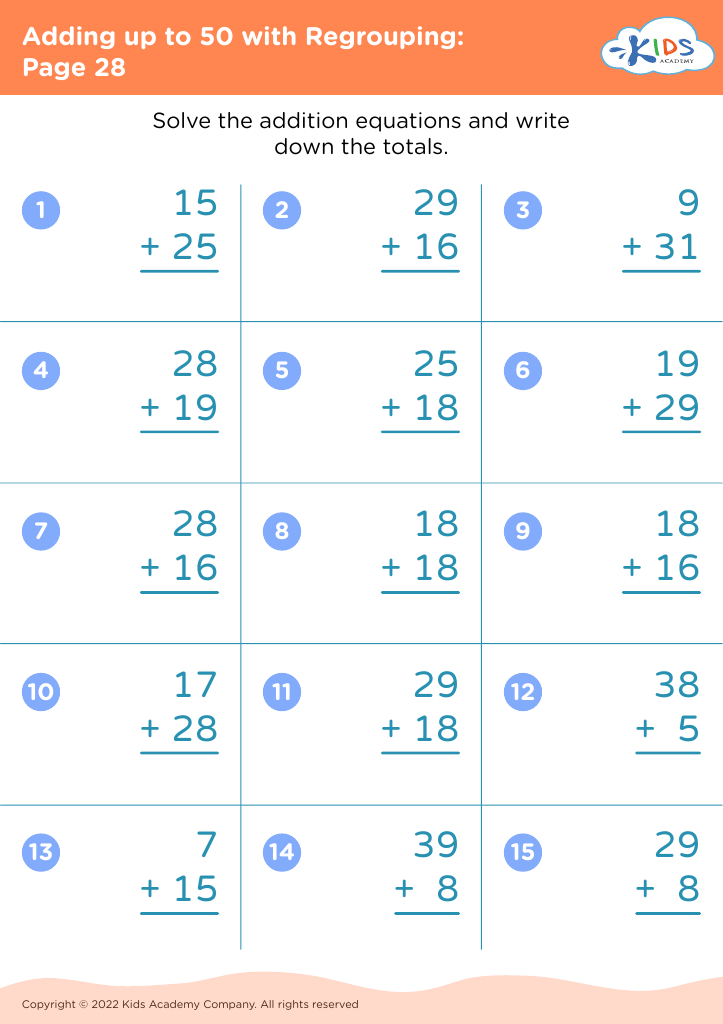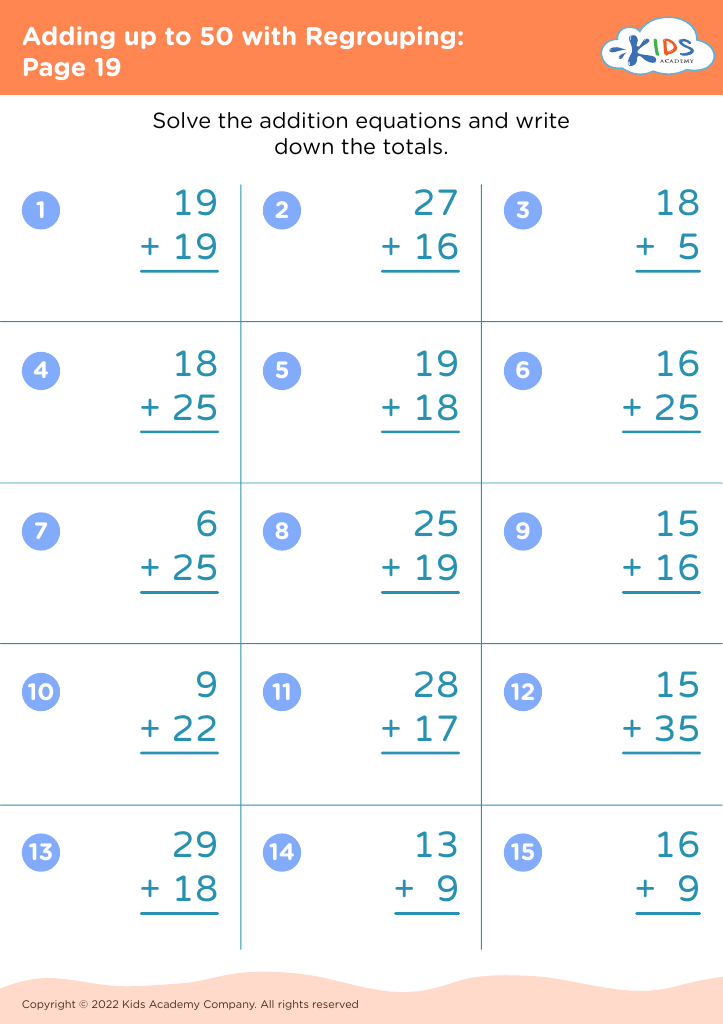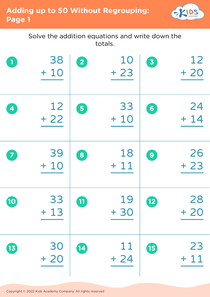Number Recognition Grade 2 Adding up to 50 with Regrouping Worksheets
14 filtered results
-
From - To
Unlock the fundamentals of addition for your second graders with our "Number Recognition Grade 2: Adding up to 50 with Regrouping" worksheets! Designed to enhance mathematical understanding, these engaging and vibrant worksheets help students practice essential number recognition and addition skills. Perfect for classroom learning or homeschooling, our resources encourage independent work, reinforcing the concept of regrouping for numbers up to 50. With a variety of exercises, students will gain confidence in their math abilities while enjoying the learning process. Download these worksheets today to support your child's journey toward mastering addition in a fun, interactive way!
Number recognition, especially in the context of addition and regrouping for Grade 2 students, is crucial for several reasons. First, it lays a foundational understanding of mathematics that is essential for future learning. By mastering the ability to recognize and manipulate numbers up to 50, students develop confidence and competence in basic arithmetic, which serves as the building block for more advanced concepts in later grades.
Second, parents and teachers play a vital role in fostering positive attitudes toward math. Focusing on skills like regrouping helps students navigate challenges, nurturing problem-solving skills and resilience. By learning to regroup, students understand that numbers can be broken down and rearranged, which promotes flexibility in thinking.
Furthermore, early proficiency in number recognition and addition enhances students' performance in various mathematical applications, such as algebra and geometry, ultimately influencing their academic trajectory. Engaging with these mathematical concepts at an early age encourages a love for learning and promotes critical thinking skills, essential in today’s world. In essence, number recognition and addition with regrouping equip children with skills not only necessary for academics but also valuable in everyday life, thus emphasizing the significant role parents and teachers must play in their development.


